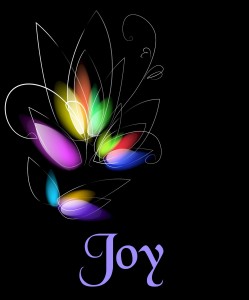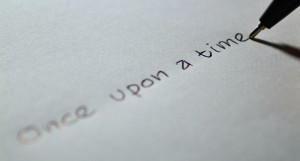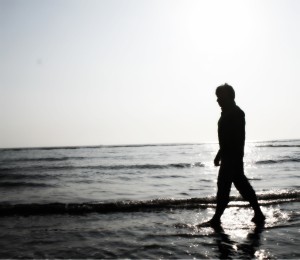Today I want to briefly examine happiness versus pleasure. Happiness is such a broad topic; I find it remarkably difficult to approach. In the past when I have discussed happiness I have received considerable criticism, mostly from people who disagreed with my perception of what it means to be happy.

Happiness is an individual endeavor; to say it is a personal choice seems to rub people the wrong way. Yet, I have to believe that it is just that. While pursuing happiness never seems to work, deciding to be happy regardless of the outer circumstances, is the way I live my life, and that certainly is a choice.
This decision is not the same as saying that I enjoy everything that happens. It merely says that I will not have the calm peace of my soul disrupted by the winds of change.
Consider these words from the Dhammapada:
As solid rock
is unshaken by the wind,
so are those with wisdom undisturbed,
whether by praise or blame.
Â
On hearing true teachings
the hearts of those who are receptive
become serene,
like a lake, deep, clear and still.
Â
Virtuous beings are unattached.
They do not indulge in heedless speech
about sensual pleasures.
They experience both joy and sorrow
but are possessed by neither.
- Extracted from A Dhammapada for Contemplation by Ajahn Munindo
I feel like this idea expresses the type of happiness that I choose to experience.

This method of living is not swayed by the highs and lows typically associated with happiness or lack of happiness, it is more of an even keel, a middle way. While I do have some movement, moments were I am very joyous and moments where I feel anger, I move very quickly back to the middle, where happiness, for me, resides.
I think some of the resistance I have noticed when I have written of happiness in the past is because people confuse happiness with pleasure. Consider these words from Thomas Merton:
“Do not look for rest in any pleasure,
because you were not created for pleasure:
you were created for joy.
And if you do not know the difference between pleasure and joy
you have not yet begun to live.â€
My life has taught me that the experience of pleasure is fleeting. Addiction to pleasure is one of the quickest ways to live a life filled with pain. One does not have to be particularly spiritual to understand that the pursuit of pleasure leads to a frequent experience of its opposite. Take for example the words of John D. Rockefeller:
“I can think of nothing less pleasurable than a life devoted to pleasure.â€
Epictetus understood what I am talking about: “It is the nature of the wise to resist pleasures, but the foolish to be a slave to them.â€
When we live life trying to find happiness in the desires of the flesh, whether that be physical pleasure or our ego-based needs, we are destined to live as though we were on a roller coaster, with extreme, though short-lived, highs and deep, painful lows. I have lived that life and found the agony of the lows too excruciating for the highs to ever be worthwhile.

It is sort of paradoxical that when I stopped pursuing pleasure,
as a means of happiness, life became pleasurable all the time.
There is a certain ecstasy, an inner joy, if you will, which
becomes available to the person who is neither seeking the
highs of physical pleasure nor moved by the lows that necessarily
accompany resistance to “what is.â€
Consider these words from the poet Ranier Maria Rilke:
“Physical pleasure is a sensual experience no different from pure seeing or the pure sensation with which a fine fruit fills the tongue; it is a great unending experience, which is given us, a knowing of the world, the fullness and the glory of all-knowing. And not our acceptance of it is bad; the bad thing is that most people misuse and squander this experience and apply it as a stimulant at the tired spots of their lives and as distraction instead of a rallying toward exalted moments.â€
Just as the bumper sticker suggests, Joy is an inside job, and in my humble opinion, happiness is as well. Dada Vaswani understands this:
“Happiness, true happiness, is an inner quality. It is a state of mind. If your mind is at peace, you are happy. If your mind is at peace, but you have nothing else, you can be happy. If you have everything the world can give – pleasure, possessions, power – but lack peace of mind, you can never be happy.”
I suspect that most of us will never enjoy pain, but we can minimize its effect on our peaceful state of mind by dropping all resistance to it. A healthy love of the minute to minute experience of being alive goes a long way to insuring we live each day with a happiness which cannot be obtained through effort, but can be our experience nonetheless. 
I will leave you with these words as I feel they are worthy of thoughtful consideration:
The greatest pleasure of life is love. – Euripides
Loving life, just as it is, with whatever it brings, is the greatest secret to living in peace I can ever offer.
Today we are going to look at some of the teachings of Gangaji, primarily from her book Hidden Treasure – Uncovering the Truth in Your Life Story. Hidden treasure: Uncovering the truth in your own life story. (2011). New York: Jeremy P. Tarcher.

Gangaji takes a slightly different approach to our stories than Byron Katie does. Gangaji teaches that we:
- Must discover what our story is
- We must extract what serves us in the story
- And, ultimately, we must set ourselves free from the story
We must recognize that we all have stories. Consider these words:
“What is your story? You discover your story by noticing what you are telling yourself over and over. Notice what you tell yourself about your past, your present, and your future. In order to have any lasting impact, our stories have to be told and retold. All stories have a narrative. Your narrative is what you tell yourself through thoughts and images with accompanying emotions. What is your narrative? You can check right now. It is bound to be familiar. It is natural as human animals with developed cognitive abilities to generate and follow the narrative of our stories. It certainly is not wrong to do so. But it is limiting. It limits attention to events that are forever changing. To discover how your attention is being spent, discover what you habitually say to yourself. Listen to your narrative while suspending belief in it.â€
Understanding that we live in our stories, we must analyze them and decide to discard what is false and learn to live by only what is Truthful. Gangaji teaches:
“We mature when we realize that some of the stories cherished as the foundation of our culture are flimsy and insubstantial in truth and are sometimes outrightly false.â€Â

Part of this recognition process is noticing where we carry our stories in our bodies. Here is what Gangaji says about this:
We recognize the location of the story in our flesh and emotions. From this recognition choice is born. We have most often either chosen to continue the given story or to rebel against that story. Naturally we have been thrilled to realize that we can choose to live a different story, one we feel more in alignment with. There is yet another choice. We have the capacity to take a moment and release all stories. We can experience what it means to be nobody, uncovered even by our primary identity.â€
The Truth is that what is real, our actual Beingness, is free of all story. consider this thought:
“In the core of our beingness we are free of definitions.â€
Once we are able to get in touch with the Truth of our Being, we can set ourselves free of the prison that our story has been:
“Unencumbered by our definitions we experience ourselves as conscious intelligence aware of itself as open, endless space. This instant of being storyless is an instant of freedom. For even if our story is filled with light and beauty, to the degree that we define ourselves through that story, we are less free.â€
Upon recognizing that we have, in fact, been limited by our stories, we are free to choose life, in what Gangaji terms a “naked†manner:

“After such a moment, choice is present where before we were blindly choiceless. When we are not blinded by the stories that have been created for us, or the stories we create, we can appreciate the mysterious vastness that is holographically present in each moment of any story. We can discover what is and has always been here, throughout whatever rendition of story was being lived or believed. Each of us can take any story from our past, and we can discover the treasure that was hidden only through unquestioning belief in narrowly focused assumptions of the time. Stories can then be profoundly appreciated as displays of multidimensional life expressing itself in all forms.â€
Both Gangaji and Byron Katie teach that blindly living from our stories can be destructive. Where Katie teaches we need to drop our stories, altogether, Gangaji finds that there is greater value in recognizing what is True in our stories and keeping that, while discarding everything which we have accepted as truth but no longer serves us.
Both find the awareness that we have been ruled by our stories to be of paramount importance. Here is Gangaji’s thoughts on the matter:
“Just becoming more aware of the stories we live, along with their infinite plotlines and subplots, begins to wake us up. In lucid dreaming, we become aware of ourselves as both in the dream story and outside it. In lucid living, as in lucid dreaming, we are no longer tyrannized by the stories circulating around and inside us. The demon in the nightmare can be faced directly; the flying dream can be enjoyed in its ecstatic moment. As we face ourselves in our stories, we have space for perspective. We can stand back and see our personal story as part of a bigger whole.â€
To Gangaji, our story is just one more piece of the overall puzzle which can lead us to the Truth of our being. Understanding which parts of our stories have value can help us discover who and what we are and why we are here.
Consider one more idea from Gangaji which highlights how she feels about the value of our stories:
“You can ask yourself how your inner sense of self is expressed, or has gone unexpressed, in the structure and message of your life story.â€
It is vitally important, from both teachers’ perspectives, that we stop blindly telling our stories. It is essential that we recognize which aspects of our lives have been lived, unconsciously, in compliance with these identities which, more often than not, were created for us by our families and other authority figures throughout our early development.
Whether one chooses to discard all stories as being the chains  which they are or if one decides to pick and choose to keep the parts of the stories which are useful while discarding the ones which are destructive, awareness and conscious decision are the keys to freedom. In either case, blindly telling ones story, to ourselves and to others, serves no useful purpose, and in actuality such practice can lead us deeper into the bowels of imprisonment.
which they are or if one decides to pick and choose to keep the parts of the stories which are useful while discarding the ones which are destructive, awareness and conscious decision are the keys to freedom. In either case, blindly telling ones story, to ourselves and to others, serves no useful purpose, and in actuality such practice can lead us deeper into the bowels of imprisonment.
Telling our stories, as the truth of our lives, is habitual. We often do it without thinking. All habitual behaviors keep us from being fully present. For this reason, if the others have not been compelling enough, it is important to stop this tendency, right here and right now. Stopping can be done with no judgment, just an awareness, recognition, and cessation. Ultimately, we are all seeking freedom. Choosing to halt the mindless repetition of our stories moves us one step closer to this goal.
On July 22nd I hastily posted a Secret entitled: Prayer for an Open Heart and Mind and I mentioned that I would like to share some quotes from authors who addressed this idea that “we are not our stories.â€
First off, I apologize to everyone for posting such a poorly written piece. I wrote it in the period of about ten minutes when I realized that midnight was approaching and that I had not posted yet.

I was working on the house, all day, trying to get ready for carpet, and had let the time, for writing, slip away. I proofed the short writing, but I missed three or four glaring errors. Sometimes when I proof, my own writing, I read what I was trying to say instead of what I typed. This is why I typically proofread my posts five to six times. I did not take that time, on the 22nd, and the writing reflected my lack of attention.
I have since improved the piece, but it is still in need of work. What is interesting, to me, is that I seldom receive many comments on my writings, yet these poorly assembled thoughts generated no less than six kudos and suggestions. One of these comments was a request for me to share some of the quotes, I had suggested.
I had promised that I would discuss some of the quotes I had in mind, but then my laptop quit and I did not post any writings for the whole following week. Today, I want to share one writer’s reflections concerning our stories.
For now, I want to talk about “The Work†by Byron Katie. If you are familiar with any of her books, Loving What Is, I Need Your Love – Is That True?, A Thousand Names for Joy – Living in Harmony with the Way Things Are or Who Would You Be Without Your Story – Dialogues With Byron Katie, then you have been exposed to what she calls The Work. Byron also has another paperback, Question your Thinking, Change the World: Quotations from Byron Katie and a CD Your Inner Awakening: The Work of Byron Katie: Four Questions That Will Transform Your Life but I have not read or listened to these two.
Before I explain Byron Katie’s “The Work†I want to say that if I were to make one suggestion for “reading and practice†that I thought should be mandatory for every human being, it would be one of these books. Even a simple, one time, reading of this material, forever changes the reader’s perspective on living life without the pain created by the insistence that we “are†our stories.

Following a deep, dark depression, Byron Katie, discovered that when she believed her thoughts, she suffered, but when she didn’t believe them, she did not suffer, and she concluded that this Truth applied to every human being. She realized that suffering was optional. She wrote, “I found a joy within me that has never disappeared, not for a single moment.†And “That joy is in everyone, always.â€
Katie’s work consists of asking four questions about every “truth†that makes up our “story.â€
- Is the story true?
- Can you absolutely know that this story is true?
- How do you react when you believe your story is true?
- Who would you be without the belief that your story is true?
According to Byron, “Without your story, you’re perfectly fine.†On her blog, she shares this excellent worksheet for walking through the four step process for turning around any thoughts which we no longer wish to own: Worksheet for reversing judgment.
According to Ms. Katie, we suffer because we have stories which create suffering when we believe them. Consider these words: “A lover of what is looks forward to everything: life, death, disease, loss, earthquakes, bombs, anything the mind might be tempted to call “bad.†Life will bring us everything we need, to show us what we haven’t undone yet. Nothing outside ourselves can make us suffer. Except for our unquestioned thoughts, every place is paradise.â€
Any time we are tempted to tell our stories, be it “My father was a critical perfectionist and I was never good enough to please him. My mother was jealous and competed with me. My father is an alcoholic. My mother beat me. My children don’t respect me. My ex is a jerk. I’m too fat. I was a bad mother. I’m not living up to my potential. My boss is a tyrant. My spouse nags and doesn’t show any love and affection.†“I don’t have enough money.†or “My lover rejected me and I’ll never love again. I’m stupid.†life is showing us an area where we are in need of healing.

I will leave you here for today, as I really think this is enough to consider. Tomorrow, we will look at some of the teachings of Gangaji, another of my favorite authors, and I will share some of her teachings concerning our stories, their significance and the dangers in believing in them.
Until then, ponder the Truth in this statement from Byron Katie and know that our continued telling of and belief in our stories creates all of our suffering: “When you don’t believe your own thinking, life becomes effortless.*â€
Recent Comments